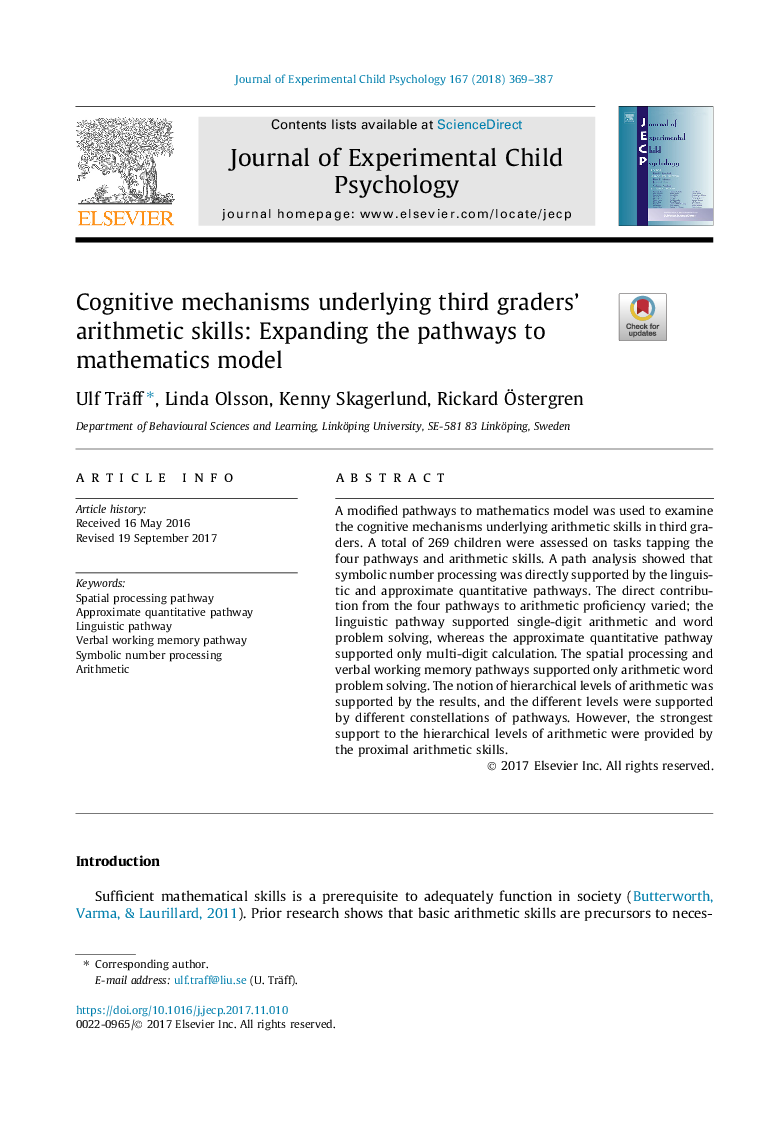| Article ID | Journal | Published Year | Pages | File Type |
|---|---|---|---|---|
| 7274175 | Journal of Experimental Child Psychology | 2018 | 19 Pages |
Abstract
A modified pathways to mathematics model was used to examine the cognitive mechanisms underlying arithmetic skills in third graders. A total of 269 children were assessed on tasks tapping the four pathways and arithmetic skills. A path analysis showed that symbolic number processing was directly supported by the linguistic and approximate quantitative pathways. The direct contribution from the four pathways to arithmetic proficiency varied; the linguistic pathway supported single-digit arithmetic and word problem solving, whereas the approximate quantitative pathway supported only multi-digit calculation. The spatial processing and verbal working memory pathways supported only arithmetic word problem solving. The notion of hierarchical levels of arithmetic was supported by the results, and the different levels were supported by different constellations of pathways. However, the strongest support to the hierarchical levels of arithmetic were provided by the proximal arithmetic skills.
Keywords
Related Topics
Social Sciences and Humanities
Psychology
Developmental and Educational Psychology
Authors
Ulf Träff, Linda Olsson, Kenny Skagerlund, Rickard Ãstergren,
